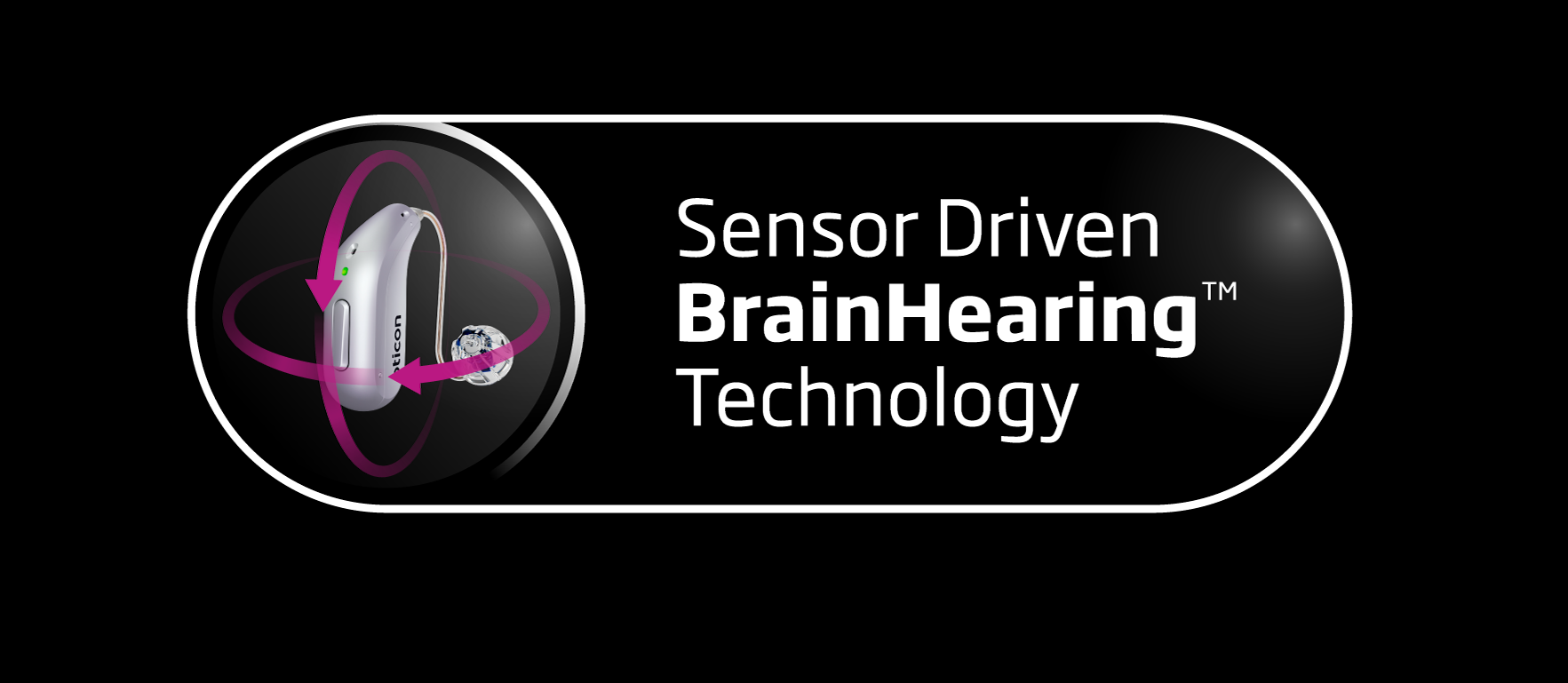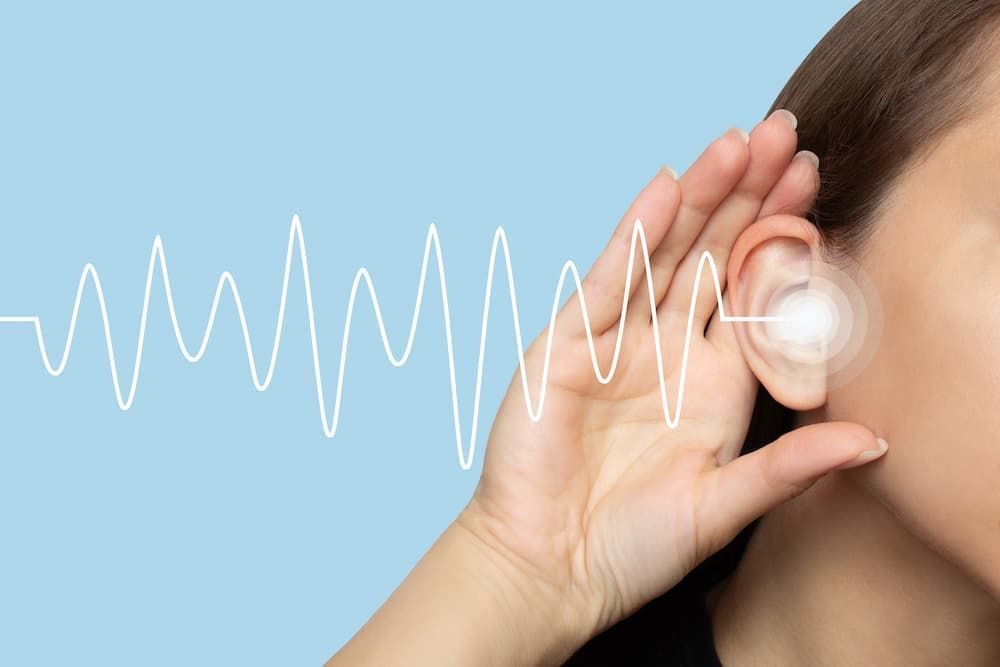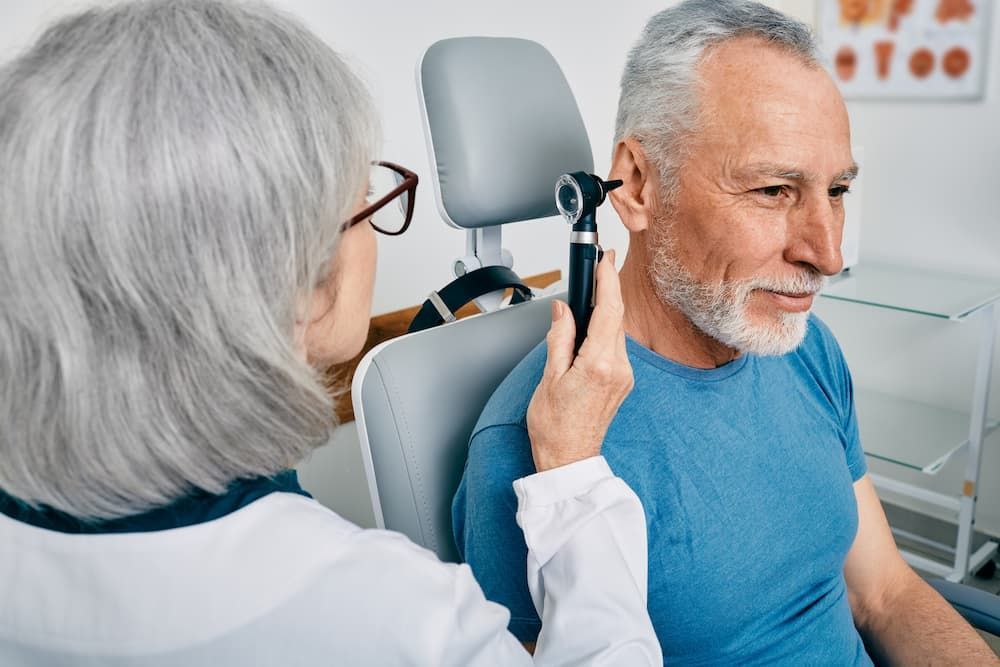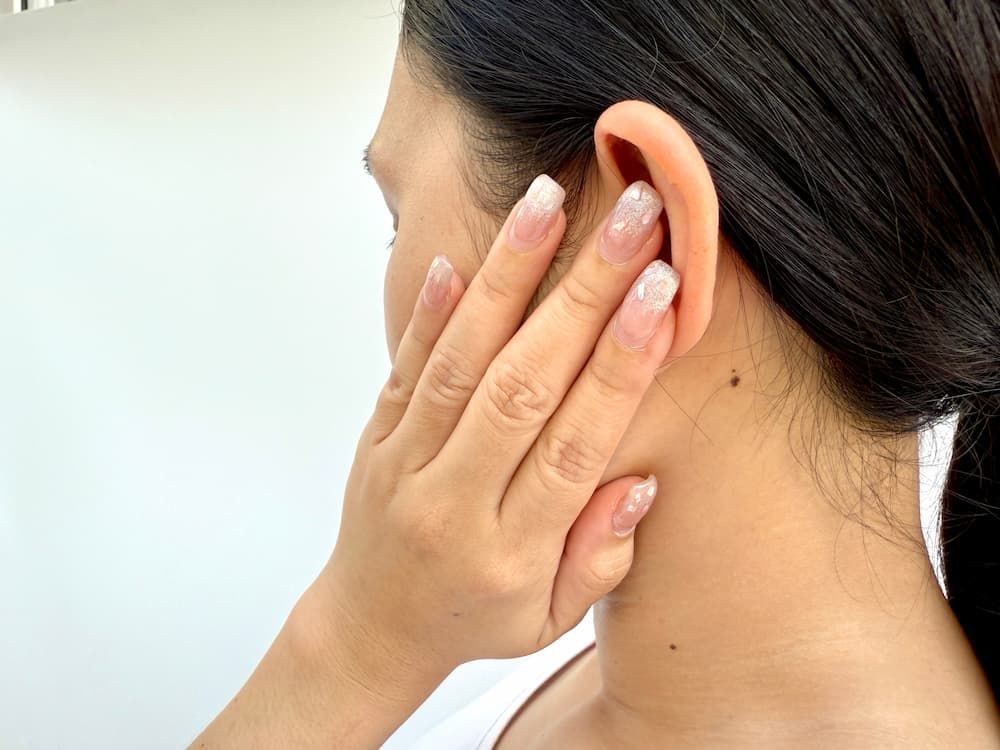Hearing Loss & Depression: How Better Hearing Improves Mental Health

Understanding the Link Between Hearing Loss and Depression
 After reaching the age of 60, it is not uncommon for the average person to develop a higher risk of hearing loss, as well as increased risk of clinical depression. There have been many studies made to determine the association between
hearing loss and depression
as they occur in older people. Some studies have suggested there could be a connection, while others report no such association. Follow along as we dig into the psychological effects of hearing loss.
After reaching the age of 60, it is not uncommon for the average person to develop a higher risk of hearing loss, as well as increased risk of clinical depression. There have been many studies made to determine the association between
hearing loss and depression
as they occur in older people. Some studies have suggested there could be a connection, while others report no such association. Follow along as we dig into the psychological effects of hearing loss.
Why Studies on Hearing Loss and Depression Differ
There are several reasons for the differences in the findings of these studies. First and foremost, many of these studies that report a connection between depression and hearing loss are of the epidemiological sort. These cohort or cross-sectional studies are often tainted with bias on the part of the researchers and this will obviously affect the conclusions and makes the findings dubious.
The second reason has to do with the use of pure tone audiometry, and others use a form of self-reported measuring. Naturally, the outcomes of these different trials may produce a wide range of outcomes and biased results and can't be used as hard evidence.
Third, many of the studies in question do not consider the influence of cognitive decline that also occurs as part of the aging process and how it plays into the association between hearing loss and depression. This is despite the well-known fact that cognitive decline has been found to have a positive association with hearing loss in aging adults. Therefore it remains uncertain whether the use of a hearing aid will improve conditions of depression.
Finally, a good portion of the studies that examine the connection between hearing loss and depression in elderly people fail to include results adjusted by participant psychosocial characteristics and this shakes the foundations of their certainty.
Considering these points, it was clear that only systematic review and meta-analysis of the assortment of studies would provide any solid evidence that supports the possible connection between depression and hearing loss.
Research and Meta-Analysis on Hearing Loss and Mental Health
And so such a systematic review and meta-analysis on the possible association between these two common conditions of aging was conducted and identified all the studies performed on the subjects from the first dated publication to the July 17, 2018. The outcomes of study characteristics, participants and other research on hearing and depression as they could be associated in aging adults were reported from the cohort but different study. The effect size of this meta-analysis has been represented by an Odds Ratio. Smaller ORs are greater or equal to 1.68, medium ORs to 3.47 and large ORs to 6.71.
A total of 1,435 titles and abstracts were examined in their online databases and from these, only 35 suitably matched the criteria of this meta-analysis. From these studies, 147,148 included participants from 18 countries, 24 has cross-sectional designs and the remaining 11 were cohorts. In the studies that used samples from the demographic in question, the tests subjects were always older (with an average age of 73.43) and mostly female (58.69%).
In general, there was a small but significant increase in depression associated with the loss of hearing (OR = 1.47, 95% CI = 1.31 – 1.65). But there were no significant connections observed when the studies were arranged by the proportion of participants, type of hearing measurements used, presence of cognitive impairment or inclusion of covariates in results.
The Hearing Loss–Depression Connection Explained
 The first important finding that is established by this meta-study is that hearing is associated with a small but significant increase in the risks of depression, as much as 1.47. Even though this is a fairly small amount, this increase in the risk of depression in seniors experiencing hearing loss means that many will suffer depression, although most probably won’t.
The first important finding that is established by this meta-study is that hearing is associated with a small but significant increase in the risks of depression, as much as 1.47. Even though this is a fairly small amount, this increase in the risk of depression in seniors experiencing hearing loss means that many will suffer depression, although most probably won’t.
Within the broader population, depression is frequently associated with negative life events (e.g., death of a loved one, loss of income), long-term stress, personality disorders, substance abuse, and poor diet, and these factors may be exacerbated considerably in adults with health concerns and preconceptions of the aging process. In the broader scheme of things, depression can be related to a wide range of conditions including life events, stress, long term health conditions, and more.
This means that, health providers and especially audiologists addressing the conditions of hearing loss in older adults must be sure they consider the heterogeneous etiology of depression. In other words not all of their elderly patients suffering from hearing loss will be depressed about it.
Addressing Depression in Patients with Hearing Loss
The next important finding by the meta-analysis, was that the association between a loss of hearing and the risk of depression is not affected by the type of measuring unit, physical or social characteristics or any form of hearing aid. There has been evidence that suggests that social support is an effective treatment to counterbalance hearing loss and depression in later life and suggest that counseling and educational training may be the best thing to improve their quality of life.
Aging adults suffering from loss of hearing have reported wanting, but not being offered, psychosocial counseling as a part of their overall aural rehabilitation. It is also worth noting that many older adults introduce stigma with depression and it can also contribute to depression and other mental disorders. This may make them reluctant to look for help and this can make it increasingly difficult for those geriatricians and audiologists trying to provide help to know where and when help is needed.
Supporting Seniors with Hearing Loss and Depression
Audiologists can get ahead of this issue by learning more about the difficulties older adults will face when their hearing is becoming reduced and what kind of psychosocial challenges they will experience. This will increase your capacity and confidence in speaking to older patients about their needs for aural help. Furthermore, health professionals working in the field of adult hearing loss will benefit from depression scorning tools to zero in on patients that may already be at risk. This will also allow more people to benefit from suitable psychological and psychiatric care for depression.
 In conclusion, some adults who experience hearing loss may also suffer from a resulting depression. While technically there is no clear-cut evidence that hearing aids will improve their depressive condition, at the same time, there has been an excess of variability between the methods applied for achieving these results in the various meta-analysis studies.
In conclusion, some adults who experience hearing loss may also suffer from a resulting depression. While technically there is no clear-cut evidence that hearing aids will improve their depressive condition, at the same time, there has been an excess of variability between the methods applied for achieving these results in the various meta-analysis studies.
So, while hearing loss sufferers may experience a marginal level of depression over non-hearing loss individuals, we suspect that anyone frustrated with not being able to hear conversations, music, television, or movies is at risk of a decrease in enjoyment of life, and even as far as detachment and withdrawal from social environments. Whether you call that depression or not, there are options to improve your hearing. We can help you at Tinnitus & Hearing Center of Arizona. Call us to schedule a consultation at (480) 831-6159.
The information provided in this article is not meant to be medical advice and is for educational purposes only. If you would like to learn more about this and other hearing-related topics, feel free to contact Tinnitus & Hearing Center of Arizona by clicking here or by calling 480-831-6159.











